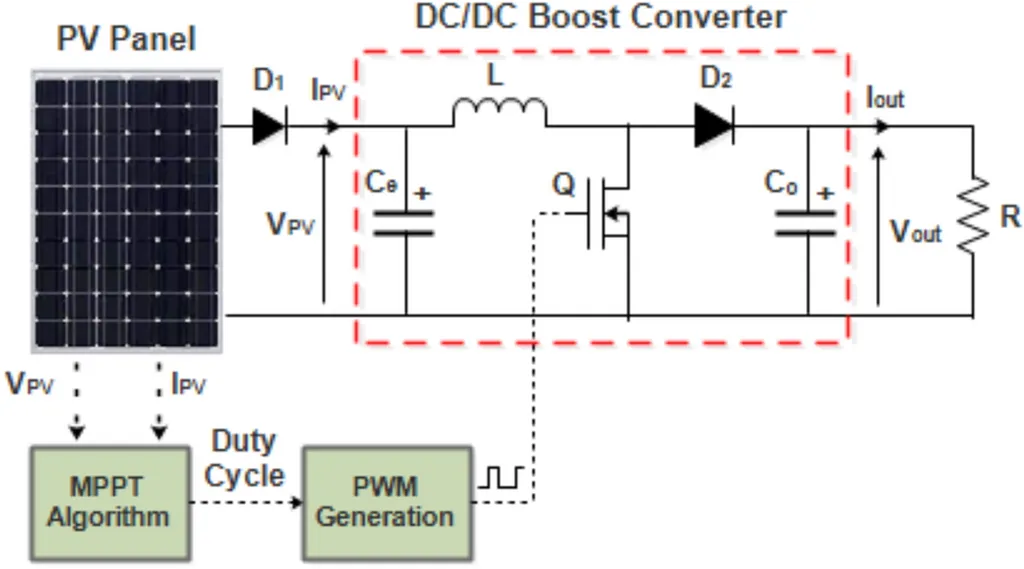In the pursuit of optimizing renewable energy systems, a recent study by Muhammad Risky Arman from the Institut Teknologi Padang has shed light on a promising approach to enhance the efficiency of solar power plants (SPP). Published in the *Scientific Journal of Telsinas*, Arman’s research focuses on improving the performance of photovoltaic (PV) systems using a fuzzy logic controller, a method that could have significant implications for the energy sector.
Solar power, while renewable and clean, faces challenges due to the variability of solar radiation and ambient temperature, which can hinder efficiency. To address this, Arman developed a Maximum Power Point Tracking (MPPT) system based on Mamdani fuzzy logic, implemented using MATLAB Simulink. This system is designed to ensure that solar panels operate at their maximum power point (MPP), thereby optimizing energy conversion.
“The fuzzy algorithm we designed uses two inputs—power and voltage—and generates a PWM signal as output to regulate the system’s efficiency,” Arman explained. “This approach allows for adaptive control, which is crucial for maintaining optimal performance under varying conditions.”
The study involved five test scenarios with different input combinations, comparing the results of MATLAB simulations with manual calculations using the centroid weighted average method. The findings revealed that the differences between simulation and manual calculations ranged from 1 to 11 PWM units, with an average discrepancy of less than 5%. Importantly, the output classification remained consistent across Low, Medium, and High categories, demonstrating the reliability of the Mamdani fuzzy manual method.
“This consistency is a strong indicator that our method is valid and reliable for adaptive control in PV systems,” Arman noted. “It’s a step towards making solar energy more efficient and dependable.”
The implications of this research are substantial for the energy sector. By improving the efficiency of PV systems, this technology could contribute to the achievement of national clean energy targets. “Our goal is to support the broader adoption of renewable energy by making it more efficient and cost-effective,” Arman added.
As the world continues to shift towards sustainable energy solutions, innovations like Arman’s fuzzy logic controller could play a pivotal role in shaping the future of solar power. The research not only highlights the potential of adaptive control systems but also underscores the importance of continuous innovation in the renewable energy field. With further development and implementation, this technology could significantly enhance the performance of solar power plants, making them a more viable and attractive option for energy providers and consumers alike.

